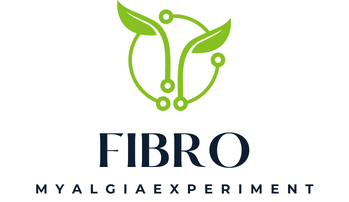In the exciting world of running a small business, you may find yourself sourcing goods from overseas markets. This international trade involves a complex web of regulations and taxes. Navigating these complexities is critical to avoid financial pitfalls and to ensure legal compliance. This article serves as a comprehensive guide on understanding and dealing with import taxes in the UK.
Understanding Import Taxes
When you import goods into the UK, the process generally involves two types of charges: Customs Duty and Value Added Tax (VAT). These import taxes are levied by the UK government to protect local industries and generate revenue. The rates vary depending on the type of goods and their origin.
A lire également : What Are the Key Elements for Creating a Data-Driven Culture in UK SMEs?
Customs Duty is a tax imposed on goods when they are transported across international borders. The duty is usually calculated as a percentage of the goods’ value. However, some goods may be subject to different rates or may even be exempt from duty.
On the other hand, VAT is a consumption tax placed on a product whenever value is added at a stage of production and at final sale. The standard rate of VAT in the UK is currently 20%, but some goods can be charged at a reduced rate of 5%, or even zero-rated.
A lire en complément : How to Effectively Manage Seasonal Demand Fluctuations in a UK Travel Agency?
Navigating the Customs Declaration Process
Importing goods into the UK requires a clear understanding of the customs declaration process. As a business owner, it’s your responsibility to declare any goods you import to HM Revenue and Customs (HMRC). This can be a complex process, but it is crucial for your business to remain compliant with customs regulations.
Firstly, you must classify your imported goods using the appropriate commodity code. This code determines the rate of duty and VAT you’ll need to pay, and it’s essential to get it right. The UK Trade Tariff tool can help you find the correct code.
Next, you need to calculate the value of your goods for customs. This isn’t just the cost of the goods, but also includes transport, insurance and any other costs up to the UK border.
Finally, you need to submit your customs declaration. This can be done online using the HMRC’s Customs Handling of Import and Export Freight (CHIEF) system.
Seeking Professional Financial Services
Given the complexities of import taxes, it’s often beneficial to seek professional help. Many small businesses turn to financial services experts who specialize in international trade and tax regulations. They offer advice, help with paperwork, and can ensure your business is fully compliant with legal requirements.
Such professionals are well-versed in the latest changes in tax law and can help you avoid overpayments or penalties for underpayment. They can also assist with claiming any tax rebates or reliefs your business may be entitled to.
Moreover, these experts can provide strategic advice to help your business save money. For example, they could advise on sourcing goods from countries with which the UK has trade agreements, potentially reducing the duty payable.
Investing in Compliance Software
In today’s digital age, there are many software solutions available to help businesses manage their import tax obligations. These tools can automate many of the tasks involved in the customs declaration process, reducing the risk of errors and saving time.
For instance, some software can automatically find the correct commodity codes for your goods. Other programs can calculate the duty and VAT payable based on this information, taking into account any applicable trade agreements or reliefs.
Investing in such a tool can be a wise decision, especially if you’re importing a wide range of goods or dealing with large volumes. It can simplify the entire process, allowing you to focus more on growing your business.
Keeping Up with International Trade Regulations
The world of international trade is constantly evolving. Trade agreements are regularly updated, and tax rates can change. Therefore, it’s vital to stay informed about any changes that could affect your business.
HMRC regularly publishes updates on changes to import taxes and regulations. Subscribing to their updates or following them on social media can help you stay informed. Joining industry associations or trade bodies can also provide valuable insights, as they often offer advice and support to their members.
In summary, understanding and navigating import taxes is a complex but necessary part of running a small business. By taking the time to understand the basics, seeking professional help, using technology, and keeping up-to-date with changes, you can ensure your business remains compliant and financially efficient.
Managing Corporation Tax Implications
Many small business owners overlook the effect of import taxes on their corporation tax liabilities. It’s vital to remember that the costs of imported goods and services, including the customs duty and import VAT you pay, are considered as business expenses. These expenses are subtracted from your revenue to calculate your business profits, upon which corporation tax is levied.
Let’s consider an example. Suppose you import goods worth £10,000, and you pay a customs duty of £2,000 and VAT of £2,400. The total cost of importing these goods is £14,400. If you sell these goods for £20,000, your profit is £5,600 (£20,000 revenue – £14,400 expenses). You pay corporation tax on this profit.
A key aspect to remember here is that VAT registered businesses can generally reclaim the VAT they’ve paid on imported goods. Therefore, in the above example, if your business is VAT registered, you can claim back the £2,400 VAT you’ve paid while calculating your business profits and corporation tax.
Being aware of these tax implications can help you make more informed decisions about your imports. For instance, you might decide it’s more cost-effective to source goods from within the UK or another EU country to avoid certain import taxes. Alternatively, you might find the quality or uniqueness of certain foreign goods justifies the additional tax costs.
Dealing with Cross Border Complexities
When importing goods across international borders, you may face additional complexities. The cross border trade involves understanding international trade laws, bilateral trade agreements, trade embargoes, and other restrictions.
For instance, if you’re importing goods from a country outside the EU, you need to be aware of the UK’s trade agreements with that country. These agreements can influence the amount of customs duty you owe. In some cases, goods from certain countries are eligible for reduced or zero duty.
Further, some goods are subject to import restrictions or require special licenses. For example, if you’re importing food products, they need to meet the UK’s health and safety regulations. Similarly, imports of certain high-tech goods may require an import license.
Understanding these cross-border complexities can be challenging. Therefore, it’s advisable to enlist the assistance of a customs broker or a freight forwarder. These professionals can help you navigate the complexities of cross-border trade and ensure your goods clear customs smoothly.
Conclusion
The road to understanding and dealing with import taxes in the UK could seem daunting for small business owners. The intricate process involves navigating complexities of customs duty, import VAT, corporation tax, and cross-border trade laws. However, with the right knowledge and resources, it becomes a manageable task.
To start with, small businesses must grasp the basics of import taxes and how they are calculated. This involves understanding the role of customs duty and VAT, and how these taxes influence the overall cost of imported goods. Further, registering for VAT and accurately declaring goods to HMRC is an essential part of the process.
Secondly, seeking professional financial services can be invaluable for businesses venturing into international trade. These experts can guide businesses through tax laws, paperwork, and potential tax rebates. Additionally, investing in compliance software can automate and simplify many aspects of the customs declaration process.
Lastly, keeping abreast of changes in international trade regulations is critical to ensure the business remains compliant and adaptable. Regular check-ins with HMRC updates and participation in industry associations can provide valuable insights.
Despite the challenges, if navigated correctly, importing goods can be a profitable venture for small businesses in the UK. The key lies in understanding the nuances of import taxes, planning for the associated costs, and utilising available resources to navigate these complexities successfully.






